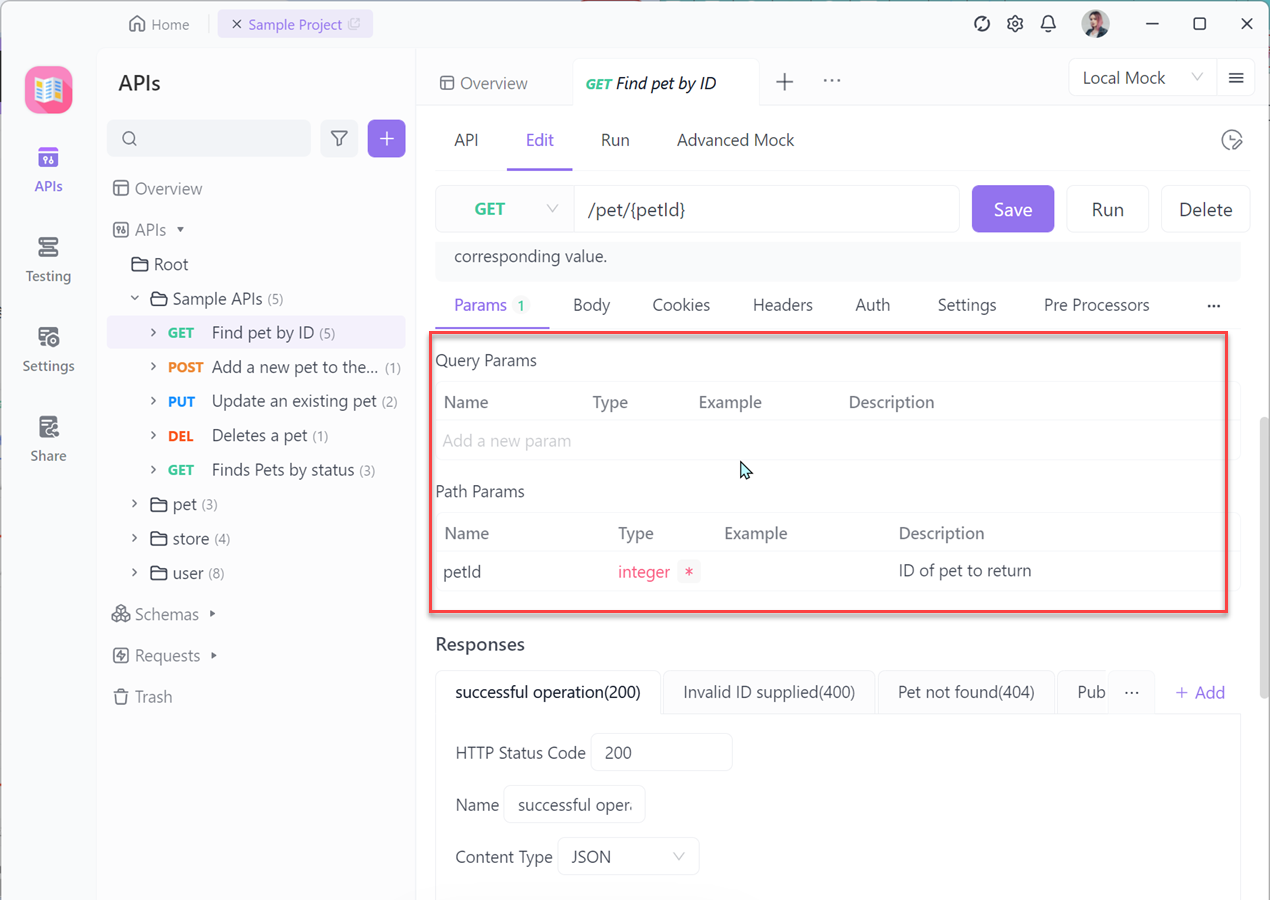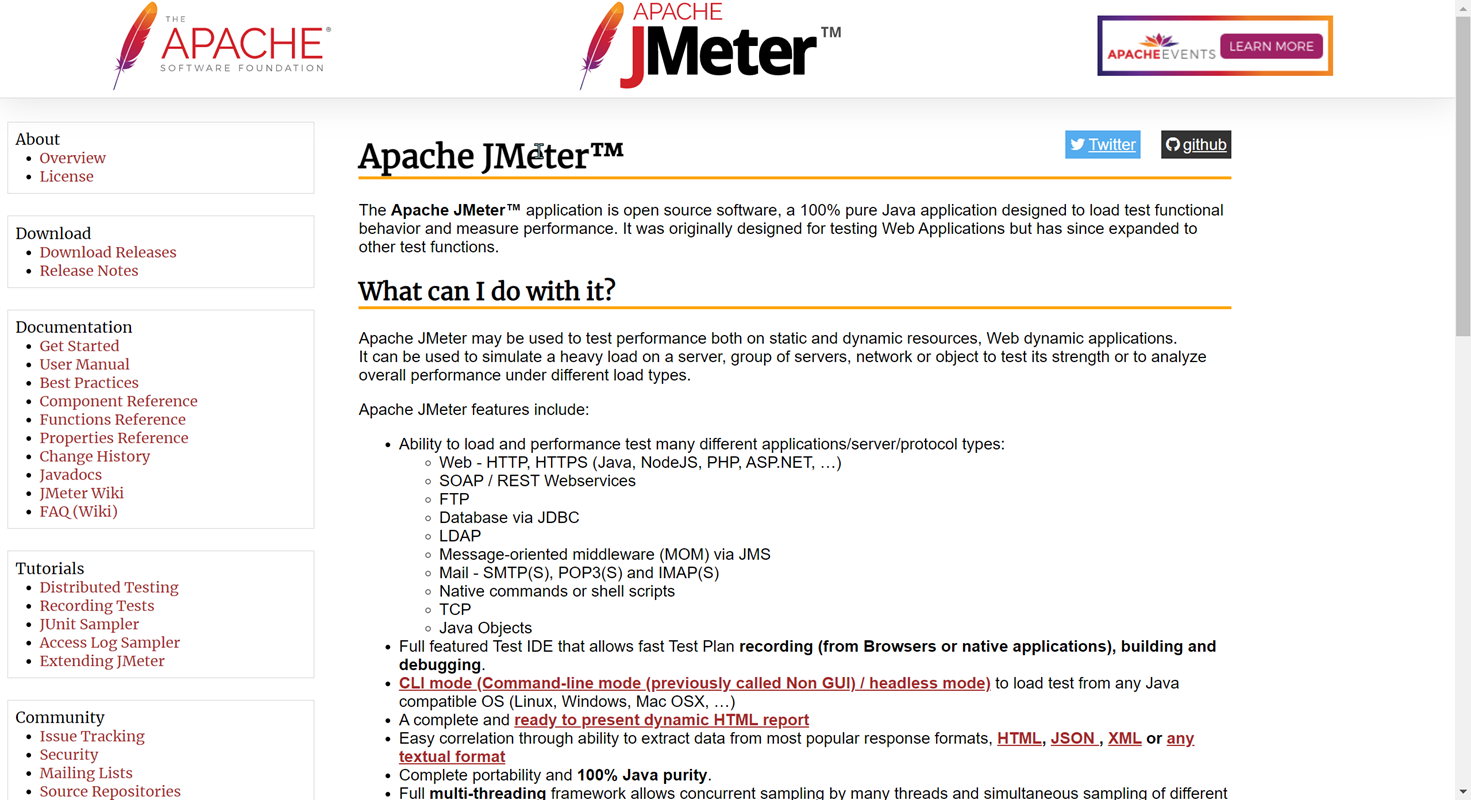Top 10 Online API Testing Tools | Test APIs Online
To help you make the best choice for your API testing needs, we've compiled a list of the top 10 online API testing tools. These tools are not only powerful but also cost-effective, making them ideal for both small startups and large enterprises.
In today's digital landscape, API testing is a crucial component of software development and quality assurance. It ensures that your application's APIs are robust, reliable, and ready to perform in real-world scenarios. Use Apidog, an REST API tester to quickly test and validate REST API endpoints of your website with a single click.
What is API Testing?
API testing refers to the practice of sending requests to API endpoints, analyzing the responses, and checking that the API behaves as intended. This involves validating status codes, response times, data formats, and more against pre-set criteria. API testing is often done by automation tools rather than manually. It focuses on an application's business logic exposed through the API.
API testing is vital because it verifies the API works correctly, is reliable under load, delivers expected performance, and is secure against attacks. Thorough API testing across development, deployment, and subsequent phases is crucial for releasing a high-quality API. It ensures functionality and readiness for integration with client applications.
To help you make the best choice for your API testing needs, we've compiled a list of the top 10 online API testers. These testers are not only powerful but also cost-effective, making them ideal for both small startups and large enterprises.
10 Best Online API Testers in 2024
1. Apidog: The Best Tool for API Testing
Apidog is a user-friendly, free API testing tool with powerful features. It allows developers and testers to send real-time HTTP requests to APIs. Its simplicity makes it suitable for both beginners and experts. Users can customize parameters for various testing scenarios, and the tool offers features like test data generation, request and response validation, and integration with CI tools for automation.
Key Features of Apidog:
- Real-time API Testing: Apidog allows you to send HTTP requests to APIs and receive responses in real-time, making it easy to test API functionality and performance.
- User-Friendly Interface: Apidog provides a user-friendly interface designed for easy navigation, catering to both beginners and experienced testers.

- Customization: Users can configure and customize request headers, query parameters, and authentication methods, enabling testing of various scenarios and edge cases.
- Request and Response Validation: The tool provides robust validation capabilities for defining expected request and response structures, ensuring the API behaves as intended.
- Compatibility with Multiple Data Formats: Apidog seamlessly integrates with common data formats such as Postman, OpenAPI, and JMeter, enabling users to easily import and export test data to Apidog.
- Cross-Platform Compatibility: Insomnia is a versatile cross-platform tool, compatible with Windows, Mac, and Linux operating systems.
How to Test an API Online?
Step 1. Click the button to download and install Apidog. And login to Apidog by Google or GitHub.

Step 2. Create a new API or request by clicking the "+" tab as well as the below "New API".

Step 3. Set up the testing request's parameters, such as the request methods, and URL in the Apidog visual UI. After filling in the basic information, you can click "Save" for reuse.

Step 4. Send the API with a simple click. For a second, it will respond to the API testing result, and you can analyze it in the Test Report.
2.Karate
Karate is an open-source API test automation framework built on top of Cucumber. It combines API testing and mocking into a unified DSL and integrates with popular CI/CD platforms like Jenkins. Karate is great for teams with strong Java skills to rapidly implement API test automation.
Key Features of Karate
- API Testing and Automation: Karate is designed for API testing and automation, making it a powerful tool for validating APIs.
- Mocking Services: Karate can create mocks for third-party services, allowing you to test your application independently.
- Integration with HTTP: It offers built-in support for making HTTP requests, handling responses, and asserting API behavior, simplifying API testing workflows.
3. Postman
Postman is a popular choice for API testing due to its user-friendly interface and extensive feature set. It allows you to automate your tests, making it an excellent choice for regression testing. With a vast library of pre-built requests and collections, Postman simplifies the testing process.

Key Features of Postman:
- Automation for Test Suites: It allows for the automation of test suites, making it an excellent choice for regression testing and continuous integration workflows.
- Extensive Libraries and Collections: Postman provides a vast library of pre-built requests and collections, streamlining the testing process and saving time.
- Real-Time Collaboration for Teams: Postman supports real-time collaboration features, enabling team members to work together efficiently on API testing and development projects.
4. Swagger
Swagger offers a user-friendly interface for defining and generating API documentation. Swagger's testing feature allows you to validate your API endpoints, ensuring they function as intended. It's a perfect choice for developers who want to keep their API documentation and testing in one place.

Key Features of Swagger:
- API Documentation and Testing: Swagger is not just a tool for documenting APIs but also for testing them.
- Interactive API Documentation: Swagger generates interactive API documentation, making it easy for developers and consumers to understand and use the APIs.
- Monitoring and Analytics: Swagger offers monitoring and analytics features, allowing you to track the performance and usage of your APIs.
- Open-Source and Free: Swagger is an open-source tool and is available for free, making it accessible to a wide range of developers and organizations.
5.SoapUI
SoapUI is a veteran in API testing, with robust capabilities for SOAP and REST APIs. Paid versions enable validation against schemas, mock services, load testing, security scans, and more. The free version still allows comprehensive functional testing. SoapUI is suited for teams needing enterprise-level capabilities, especially for testing and migrating legacy SOAP APIs.

Key Features of SoapUI
- Versatile API Support: SoapUI is a versatile API testing tool that accommodates both REST and SOAP API testing.
- User-Friendly Interface: It provides a user-friendly interface, simplifying the creation and execution of test cases for technical and non-technical users.
- Protocol and Data Format Flexibility: SoapUI supports multiple protocols and data formats, facilitating API testing across diverse platforms and technologies.
- Development Tool Integration: The tool seamlessly integrates with popular development environments like Eclipse and IntelliJ IDEA, enabling developers to incorporate API testing into their development workflows.
6. Insomnia
Insomnia offers a simple way to send requests and view responses as a popular Postman alternative. It is completely free with support for cookies, OAuth2 authentication, environments, test scripting, and more. Insomnia's clean and elegant interface makes it great for API developers to quickly test.

Key Features of Insomnia
- Code Snippets in Multiple Languages: Insomnia provides code snippets for API requests in various programming languages, such as JavaScript, Python, and Ruby.
- Support for Environment Variables: Users can manage complex testing scenarios effortlessly with Insomnia's support for environment variables.
- Collaboration Features: Insomnia supports collaboration features, enabling team members to collaborate on API development projects effectively.
- Automation with Scripts: The tool can be automated using scripts, simplifying the integration of API testing into continuous integration and deployment (CI/CD) workflows.
7. Apigee
Apigee is an API management platform equipped with a variety of tools and capabilities that aid organizations in the design, development, security, and administration of APIs.

Key Features of Apigee
- Scalability: Apigee handles high API traffic loads, ideal for large enterprises.
- Multi-cloud support: Apigee deploys on various cloud platforms, giving organizations flexibility.
- Developer-friendly: Apigee offers tools and resources to assist developers in API creation and testing.
8. REST Assured
As a Java library, REST Assured simplifies automated testing of REST APIs. It reduces complexity around request and response assertions and complex object mapping by providing a domain-specific language. REST Assured is a lightweight yet powerful choice for Java teams to enable API test automation.
Key Features of REST Assured
- Simplified API Testing: REST Assured simplifies the testing of RESTful APIs, making it easier to create and execute tests.
- Fluent API Syntax: It offers a fluent and expressive syntax for defining API requests and assertions, enhancing readability.
- JSON and XML Support: REST Assured supports handling both JSON and XML data, allowing versatile testing of REST APIs.
- Integration with Test Frameworks: It seamlessly integrates with popular test frameworks like JUnit and TestNG for efficient test automation.
9. Runscope
Runscope is a cloud-based API testing and monitoring tool. It allows you to test and monitor your APIs from multiple locations around the world. Runscope provides a range of features, including automatic test generation, webhook testing, and API debugging. It also offers a range of integrations, including Slack, PagerDuty, and HipChat.

Key Features of Runscope
- Runscope is easy to use and offers a user-friendly interface.
- The tool provides a variety of testing and monitoring options, including automation, real-time monitoring, and integration with other popular tools.
- Runscope offers advanced features, such as scriptable tests and request chaining, that allow for more complex testing scenarios.
- The tool can be deployed either in the cloud or on-premise, depending on the organization's needs.
10.JMeter
JMeter is a popular open-source tool for load and performance testing that can also be used for REST API testing. JMeter's user-friendly interface and extensive functionality make it an excellent choice for testing large, complex systems or applications with a variety of configurations. With JMeter, users can easily create, configure, and execute API tests to measure performance and identify potential issues that may arise under different scenarios.

The Key Features of JMeter:
- It is primarily a load and performance testing tool but can also be used for functional API testing.
- Requires the user to understand its components and create test plans manually
- Supports multiple protocols, including HTTP, FTP, and WebSockets
- Highly extensible through custom plugins and scripting
- Lacks a user-friendly interface and collaboration features
Conclusion
| Tool Name | Key Features | Rating |
|---|---|---|
| Apidog | - Real-time API Testing - User-Friendly Interface - Customization - Request and Response Validation - Compatibility with Multiple Data Formats |
⭐⭐⭐⭐ |
| Postman | - User-friendly interface - Automation for test suites - Extensive libraries and collections - Real-time collaboration for teams |
⭐⭐⭐ |
| Swagger | - API documentation and testing - Interactive API documentation - Monitoring and analytics - Open-source and free |
⭐⭐⭐ |
| SoapUI | - Versatile API Support - User-Friendly Interface - Protocol and Data Format Flexibility - Development Tool Integration |
⭐⭐⭐ |
| Insomnia | - Code Snippets in Multiple Languages - Support for Environment Variables - Collaboration Features - Automation with Scripts |
⭐⭐⭐ |
| Apigee | - Scalability - Multi-cloud support - Developer-friendly |
⭐⭐⭐ |
| REST Assured | - Simplified API Testing - Fluent API Syntax - JSON and XML Support - Integration with Test Frameworks |
⭐⭐ |
| Runscope | - Easy to use and offers a user-friendly interface - Testing and monitoring options - Advanced features - Deployment flexibility |
⭐⭐ |
| JMeter | - Load and performance testing - Functional API testing - Manual test plan creation - Support for multiple protocols |
⭐⭐⭐ |
When selecting an API testing tool, it is important to evaluate multiple options rather than defaulting to any single solution. Apidog offers helpful capabilities through both its online and desktop versions but has its limitations like any tool.
Various alternatives in the API testing space may align better with your specific requirements and use cases based on factors like features, usability, cost, customization, and more. Taking the time to thoroughly assess Apidog along with other leading online API testers against your needs will enable you to determine the optimal platform that delivers the best fit for your API testing and documentation needs.



